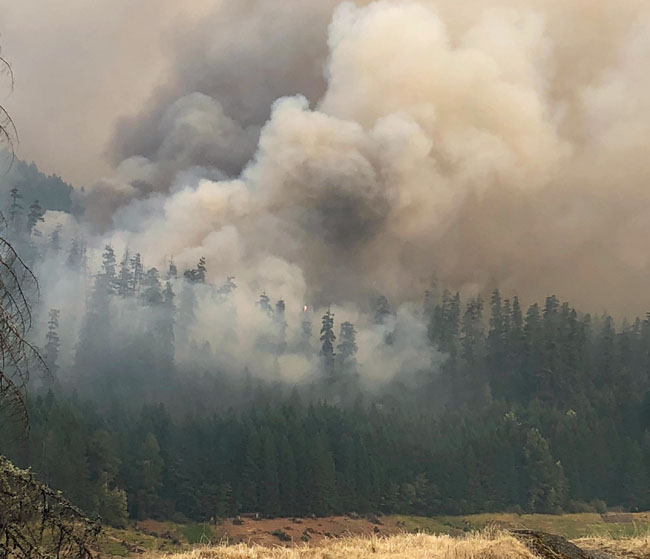
The Mail Tribune posted a video about how in recent years the occurrence of wildfire smoke seems to be more frequent in Oregon.
Some of the short term effects of smoke are well known, such as how it can affect people with pre-existing respiratory conditions, but not much research has been completed on the long term effects on residents or firefighters.
In the video, Doctor of Nursing Practice Matt Hogge introduced a condition called smoke induced depression.
“You see a lot of people coming in with mild mental health concerns”, he said, “that might not have those in their day to day life, but the anxiety of not being able to go outside and do the things that they are normally able to do really affects some people’s moods.”

The link between high air pollution rates and mental illness is increasingly being studied in urban settings as well. It is not a stretch to understand that the tiny particulate matter referred to as PM 2.5 that predominates smoke and is capable of passing through the lungs into our bloodstream would also have an effect on the sensitive brain tissues. At the very least, these particles cause an inflammatory and immune response because they are seen by the immune system as an invader similar to a virus or bacteria. Whenever we are in the beginning stages of studying a medical condition that we do not understand, we often jump to psychological reasons. It pacifies us until the evidence overwhelms us and we have to reevaluate or original conclusions. In the meantime, we have let down countless people with this nonsense.
I believe the depressed mood has more to do with the lack of sun, similar to Seasonal Affective Disorder (SAD). The lack of sun also can be responsible for decreased vitamin D levels which affect mood.